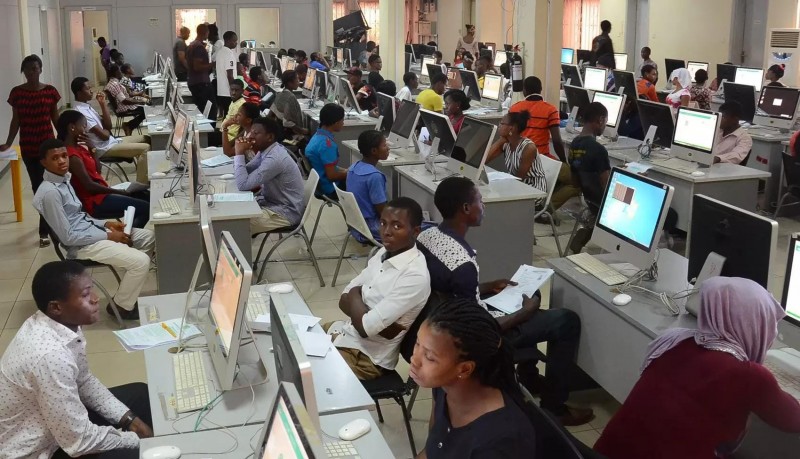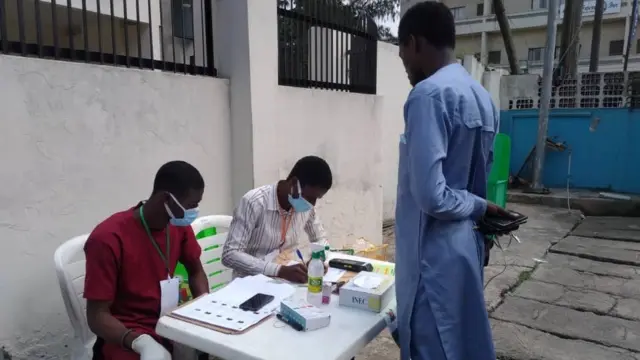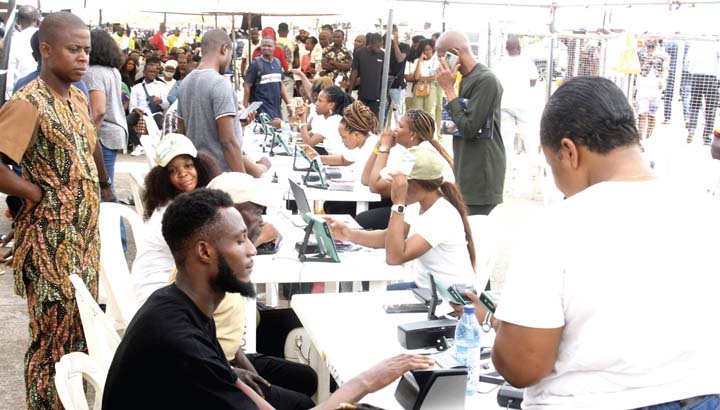Nigeria stands at a crossroads where the digital promise of efficiency collides with systemic fragility. The repeated failures—from exam portals that crashed to election systems that stalled—have eroded confidence in institutions meant to uphold merit, fairness, and democratic voice.
Table of Contents

WASSCE System Shock: From Result Release to Reputation Crash
On 7 August 2025, the West African Examinations Council (WAEC) stunned the nation. After publishing the West African Senior School Certificate Examination (WASSCE) results, the result-checker portal suddenly went offline. A security innovation—paper serialisation introduced to curb examination malpractice—was implicated in result-processing errors for key subjects such as Mathematics, English, Biology, and Economics.
Initially, only 38.32 % of nearly two million candidates were credited with five subjects including English and Maths. But after the council’s internal review, the corrected rate nearly doubled to 62.96 %. Such a drastic swing sparked outrage: parents, educators, and advocacy groups demanded an independent probe, questioning whether WAEC is fit to guard Nigeria’s academic integrity. Voices like Ike Onyechere of Exam Ethics Marshall International condemned the affair as “a national disaster,” warning that with such erratic performance, Nigeria’s qualifications risk global doubt.
UTME Turmoil: JAMB’s Glitches Shake Youth Aspirations
Not long after, the Joint Admissions and Matriculation Board (JAMB) found itself in an equally turbulent storm. In May 2025, the board admitted that nearly 380,000 candidates—those in Lagos and the South-East—were impacted by technical failures involving scrambled scores, blank screens, and truncated sessions.
Some had to sit exams again; others faced anxiety, financial burden, and delayed university admissions. The House of Representatives committee, however, attributed the mess to “human error, not system failure,” demanding an independent investigation into the lapses.
As public pressure mounted, JAMB invited experts—computer professionals, external examiners, and vice-chancellors—to review systemic weaknesses. Meanwhile, the Nigerian Data Protection Commission (NDPC) started its own inquiry, raising concerns about potential breaches of candidates’ personal data amid the mayhem.

INEC’s iReV Glitches: Democracy Disrupted
The pattern grew more alarming in the political domain. The Independent National Electoral Commission’s (INEC) iReV portal, a tool designed to transmit real-time election results for transparency, failed dramatically during the 2023 general election. When the portal faltered, manual collation returned, and the goals of swift and transparent result upload crumbled beneath technological failure (as previously reported).
These disruptions—across education and governance—have inflamed public sentiment: when the systems meant to reflect truth and fairness fail, trust becomes the casualty.
Common Threads: What Drives These Failures?
A thematic pattern emerges:
- Overreliance on Distinct Technologies without Stress-Testing: Innovations like paper serialisation and real-time portals weren’t adequately stress-tested under Nigeria’s scale and bandwidth constraints.
- Human Error, System Fault—Blame Game: Institutions oscillated between blaming human lapses and system faults, belittling public concerns and dampening confidence.
- Lack of Rapid Accountability Mechanisms: Answers were slow to come, and clear ownership was slow to emerge.
- Institutional Vulnerability in Transition: As Nigeria tries to modernise its systems, these tech transitions expose deep-rooted infrastructural and process gaps.
Rebuilding Trust: The Road to Institutional Redemption
1. Transparent, Independent Investigations
- WAEC must accept calls for oversight; JAMB should allow third-party reviews involving civil society, academic associations, and IT professionals.
2. Rigorous System Stress-Testing
- All digital platforms—be they exam-checkers or election portals—must undergo simulated load testing, failover drills, and security audits before launch.
3. Incremental Technology Adoption with Fallbacks
- Nigeria’s institutions should phase in digital tools, retain parallel manual processes as a fallback, and train users at all levels—especially rural exam centres.
4. Clear Accountability Frameworks
- Define roles, responsibilities, and sanctions in technical failure. This might include interim boards or rotating audit teams to ensure checks and balances.
5. Invest in Education and Digital Infrastructure
- Boost computer literacy, especially in underserved zones. Accompany digital rollouts with accessible infrastructure and reliable power.
6. Strengthen Data Privacy and Protection
- The NDPC must continue probing JAMB’s systems. All institutions must enshrine candidates’ data protection in their protocols.

Conclusion: Trust Is Nigeria’s Greatest Asset—and It’s at Risk
Each glitch—from processing errors to failed portals—has a domino effect. Students lose hope; parents lose faith; universities delay admissions; voters question democracy.
Yet, these institutions can pivot. WAEC’s nearly doubled pass rate demonstrates responsiveness, and some learning has taken place. JAMB’s engagement of technical experts shows intent. The NDPC’s data probe signals a move toward safeguarding privacy.
But intention isn’t enough. For Nigeria to restore trust in its critical institutions—examining bodies and the electoral commission—there must be sustained action, transparency, and humility.
Only then can we ensure that when results are released—be they exam scores or election tallies—they reflect not just digits on a screen, but the integrity of the process behind them.
Join Our Social Media Channels:
WhatsApp: NaijaEyes
Facebook: NaijaEyes
Twitter: NaijaEyes
Instagram: NaijaEyes
TikTok: NaijaEyes
READ THE LATEST EDUCATION NEWS







































